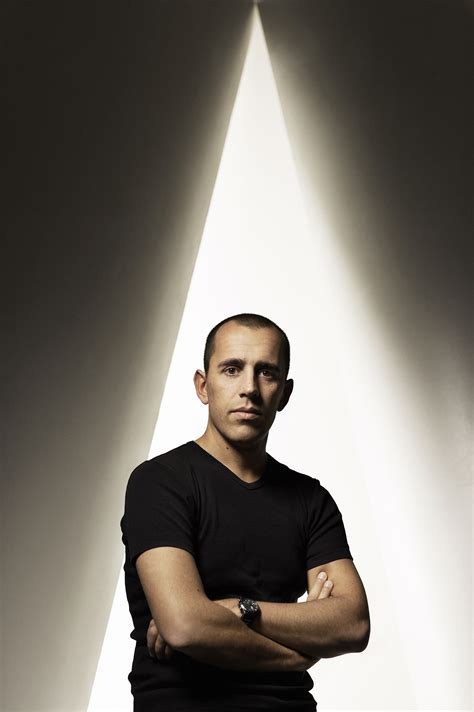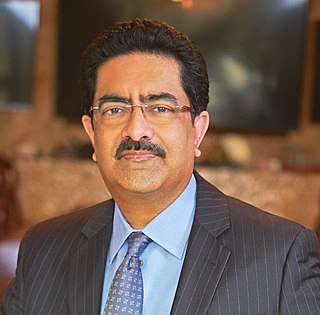A Quote by Slavoj Žižek
Think about the strangeness of today's situation. Thirty, forty years ago, we were still debating about what the future will be: communist, fascist, capitalist, whatever. Today, nobody even debates these issues. We all silently accept global capitalism is here to stay. On the other hand, we are obsessed with cosmic catastrophes: the whole life on earth disintegrating, because of some virus, because of an asteroid hitting the earth, and so on. So the paradox is, that it's much easier to imagine the end of all life on earth than a much more modest radical change in capitalism.
Quote Topics
About
Accept
Asteroid
Because
Capitalism
Capitalist
Change
Communist
Cosmic
Debates
Debating
Earth
Easier
End
Even
Fascist
Forty
Forty Years
Future
Global
Hand
Hitting
Imagine
Issues
Life
Modest
More
Much
Nobody
Obsessed
Other
Paradox
Radical
Radical Change
Situation
Some
Stay
Still
Strangeness
Than
Think
Thirty
Today
Virus
Were
Whatever
Whole
Whole Life
Will
Years
Years Ago
Related Quotes
People think what's in the US today is capitalism. It's not even close to capitalism. Capitalism doesn't have a central bank, capitalism doesn't have taxes, it doesn't have regulations; capitalism is just voluntary transactions. What they have in the US today I call crapitalism. But it's sad that so many people are confused and they think, 'Oh that's free markets in the US', when it's one of the least free market countries on earth.
Some 3 million years ago, when the earth was a little more than 3°C warmer than preindustrial levels (about 2.2°C warmer than today), Antarctica had far less ice and sea levels were a stunning 25 meters higher than today. If we stay on our current emissions path, the planet will almost certainly be that warm by the century's end.
Every time I say the word capitalism, everyone just assumes I have plenty of Marxism in me, I do. But Russia and China had their bloody revolutions and even while they were Communist, they had the same idea about generating wealth - tear it out of the bowels of the earth. And now they have come out with the same idea in the end... you know, capitalism. But capitalism will fail, too.
At one time, the earth was supposed to be flat. Well, so it is, even today, from Paris to Asnieres. But that fact doesn't prevent science from proving that the earth as a whole is spherical. No one nowadays denies it. Well...we are still at the stage of believing that life itself is flat, the distance from birth to death. Yet the probability is that life, too, is spherical and much more extensive and capacious than the hemisphere we know.
My activities, for which I gratefully accept this Award, are today what they have been for over thirty-five years and will be for the rest of my life: to counter governmental secrecy about the nuclear arms race that threatens the survival of life on earth; and to help build a world movement that will prevent a first use since Nagasaki of nuclear explosions, prevent or end interventions that could lead to such an event, and bring about a world free of nuclear weapons.
I talked a lot early on in my career about intersectionality and how racism and classism and sexism and homophobia and capitalism are all connected with each other, and they're these crazy systems that are feeding on each other and are also damaging. I can't even go into the whole spectrum of it. But I feel like kids today are so much more savvy about that conversation. And I'm so thrilled when I get to meet younger people who are doing that so much better than I did.
We are more gullible and superstitious today than we were in the Middle Ages, and an example of modern credulity is the widespread belief that the Earth is round. The average man can advance not a single reason for thinking that the Earth is round. He merely swallows this theory because there is something about it that appeals to the twentieth century mentality.
We are little animals walking on the ground, we have a certain life time, we are acting and interacting with different people, and we are trying to build things, but we are just some sort of virus compared to the entire sky. You always have to remember that the moon, the earth, the sun, they are like the real universal objects. We are just passing by, and it makes life more beautiful to think that way. More relaxing to think that way, that nothing is really important, because you give yourself much more confidence and you forgive yourself more things when you think about that.
Science is science. Science is what is. After discovery, tests, trial, if a consensus of scientists today said that the sun orbits around the earth, would we say that they're right simply because there is a consensus? No. Because we know the earth orbits around the sun just as if there were a consensus that the earth is flat would we agree with them? No. So there can't be a consensus on something that hasn't been proven. This is a political movement. This whole global warming thing is a political movement.
We imagine going to the moon and planting a flag, going to an asteroid and mining, going to Mars and setting up a colony. And I think that expansionist mentality is very self-destructive, especially given the kind of precarious relationship we now have to the ecosystem here on Earth, because it allows us to imagine that Earth is disposable.









































